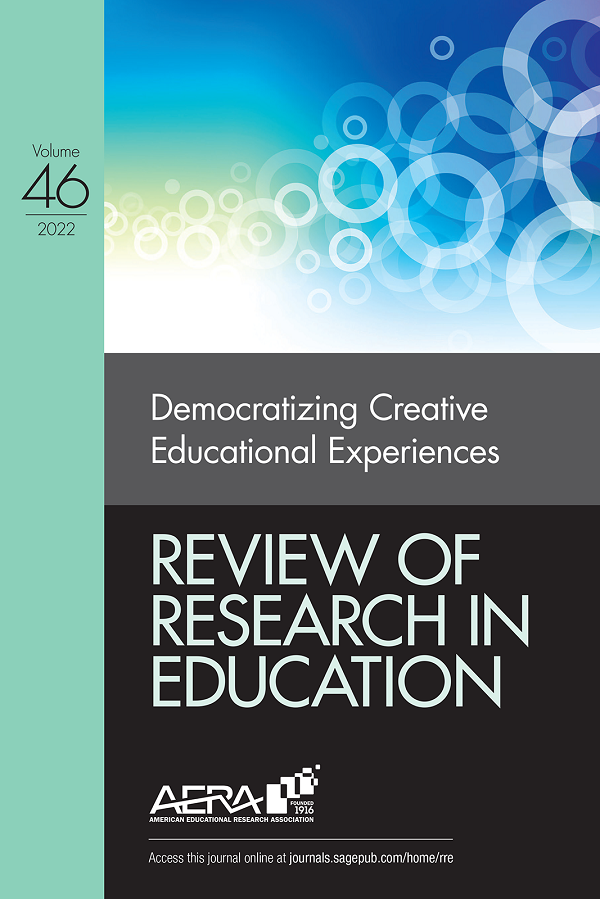学习科学、数学教育和科学教育中权力与学习共同建构的新视角
IF 2.4
1区 教育学
Q1 EDUCATION & EDUCATIONAL RESEARCH
引用次数: 16
摘要
在本章中,我们考察了学习科学、数学教育和科学教育研究中的一个重大转变,即越来越多地关注权力与学习的共同建构。我们回顾了这些领域的文章,这些文章体现了一种新的理论和方法上的可能性和困境,在批判社会理论和相互作用分析和微遗传分析的方法方法的交叉点酝酿。我们将回顾分为三个主题类别:(1)身份和意识形态的动态构建,(2)关注学习环境的组织,以及(3)利用和重新利用工具。通过阅读这些主题领域,我们确定并概述了一个新兴的子领域,我们称之为关键相互作用和微遗传分析。通过将这些文章集合在一起,本章为通过相互作用、微遗传和结构动力学共同构成和共同构建的权力和学习的主张提供了集体的认识论和经验权重。在我们的结论中,我们提出了在进行关键相互作用和微遗传分析时重要的六项分析承诺。本文章由计算机程序翻译,如有差异,请以英文原文为准。
Emerging Perspectives on the Co-Construction of Power and Learning in the Learning Sciences, Mathematics Education, and Science Education
In this chapter, we examine a significant shift in research in the learning sciences, mathematics education, and science education that increasingly attends to the co-construction of power and learning. We review articles in these fields that embody a new sense of theoretical and methodological possibilities and dilemmas, brewing at the intersections of critical social theory and the methodological approaches of interaction analysis and microgenetic analysis. We organize our review into three thematic categories: (1) the dynamic construction of identity and ideology, (2) attending to the organization of a learning environment, and (3) leveraging and repurposing tools. Reading across these thematic areas, we identify and outline a burgeoning subfield that we term critical interaction and microgenetic analysis. By bringing this collection of articles together, this chapter provides collective epistemic and empirical weight to claims of power and learning as co-constituted and co-constructed through interactional, microgenetic, and structural dynamics. In our conclusions, we suggest six analytical commitments that are important to hold when engaging in critical interaction and microgenetic analysis.
求助全文
通过发布文献求助,成功后即可免费获取论文全文。
去求助
来源期刊

Review of Research in Education
EDUCATION & EDUCATIONAL RESEARCH-
CiteScore
15.70
自引率
0.00%
发文量
14
期刊介绍:
Review of Research in Education (RRE), published annually since 1973 (approximately 416 pp./volume year), provides an overview and descriptive analysis of selected topics of relevant research literature through critical and synthesizing essays. Articles are usually solicited for specific RRE issues. There may also be calls for papers. RRE promotes discussion and controversy about research problems in addition to pulling together and summarizing the work in a field.
 求助内容:
求助内容: 应助结果提醒方式:
应助结果提醒方式:


